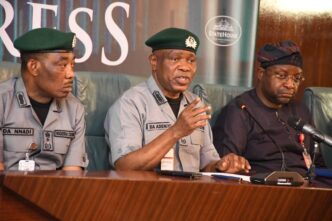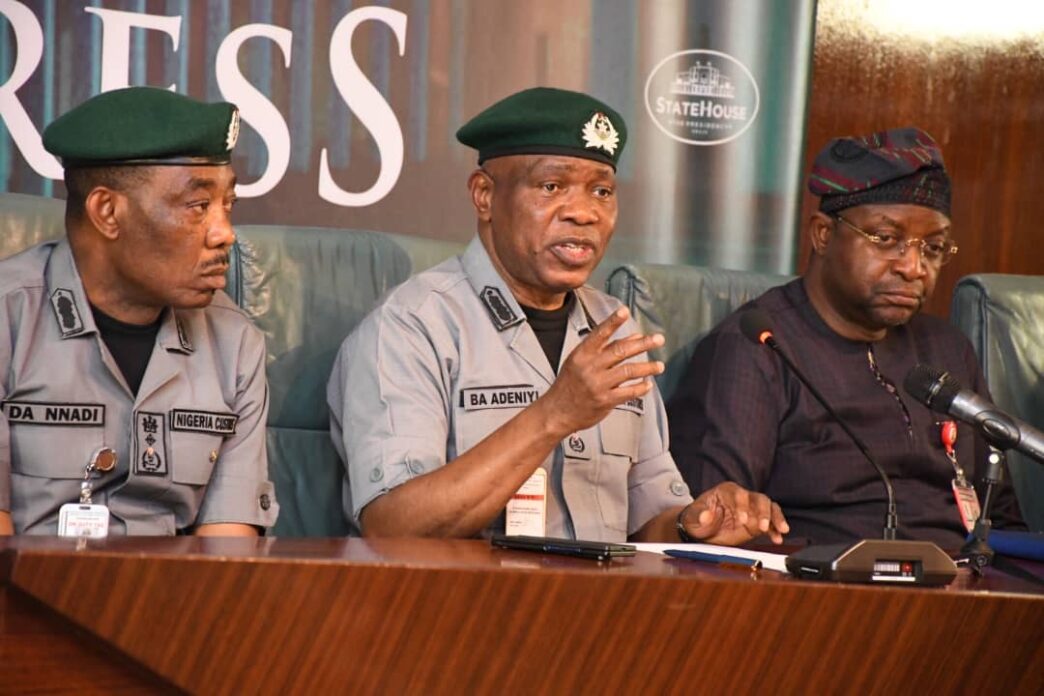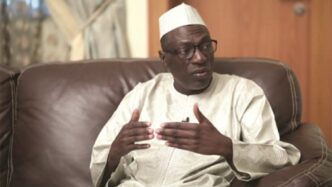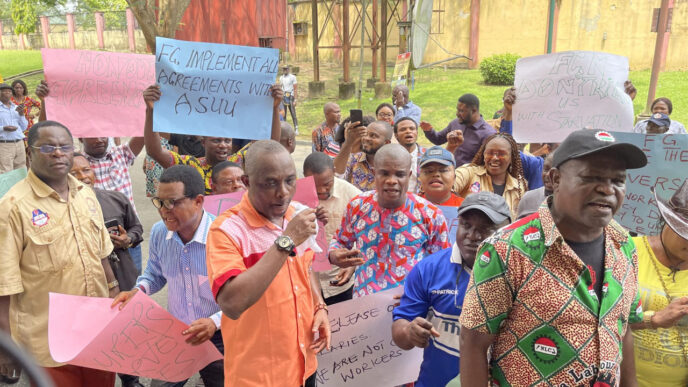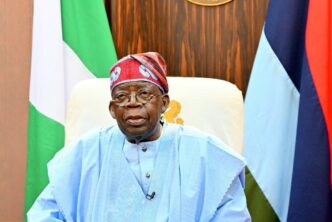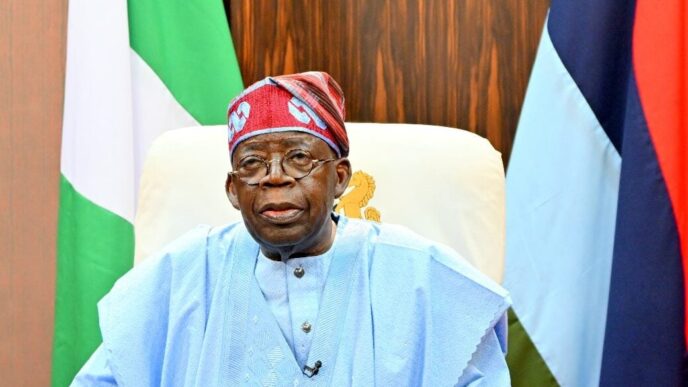Nigeria has positioned itself at the forefront of a new initiative aimed at boosting collaboration among African customs authorities, unveiling the Partnership for African Cooperation in Trade (Customs PACT) as part of a wider push to improve trade efficiency and strengthen economic integration across the continent.
Announcing the initiative at the November edition of the Meet-the-Press briefing at the State House in Abuja, the Comptroller-General of the Nigeria Customs Service (NCS), Adewale Adeniyi, said the country was reclaiming its place as a leading African trade hub.
He highlighted ongoing reforms designed to modernise port operations, streamline cargo processing, and ease cross-border trade.
Adeniyi also confirmed that Nigeria will host a major continental Customs PACT conference from November 17 to 19, 2025.
He said that, for Nigeria to unlock its trade potential fully, urgent action was needed to decongest seaports, improve logistics networks and invest heavily in modern cargo-handling systems.
He emphasised the need for Nigeria to fully adopt a national single window platform—an integrated digital system that coordinates all trade processes, reduces delays, limits human contact and curtails revenue losses.
He noted that this aligns with President Bola Ahmed Tinubu’s commitment to using trade as a driver of economic development and poverty reduction, particularly in the context of the African Continental Free Trade Area (AfCFTA).
According to Adeniyi, the administration’s policy direction prioritises port infrastructure upgrades to remove long-standing bottlenecks and cut turnaround times for goods.
While Nigeria has remained a dedicated participant in the ECOWAS Trade Liberalisation Scheme (ETLS), Adeniyi acknowledged that inconsistent implementation by other member states has hindered progress towards deeper regional integration.
He explained that agreements like AfCFTA are intended to eliminate customs duties on qualifying goods produced within participating regions, paving the way for seamless intra-African trade. However, uneven enforcement across countries has weakened the effectiveness of these frameworks.
The Customs PACT initiative, he said, aims to tackle such gaps by promoting cooperation, standardising procedures, enhancing technical capacity and ensuring readiness for AfCFTA obligations.
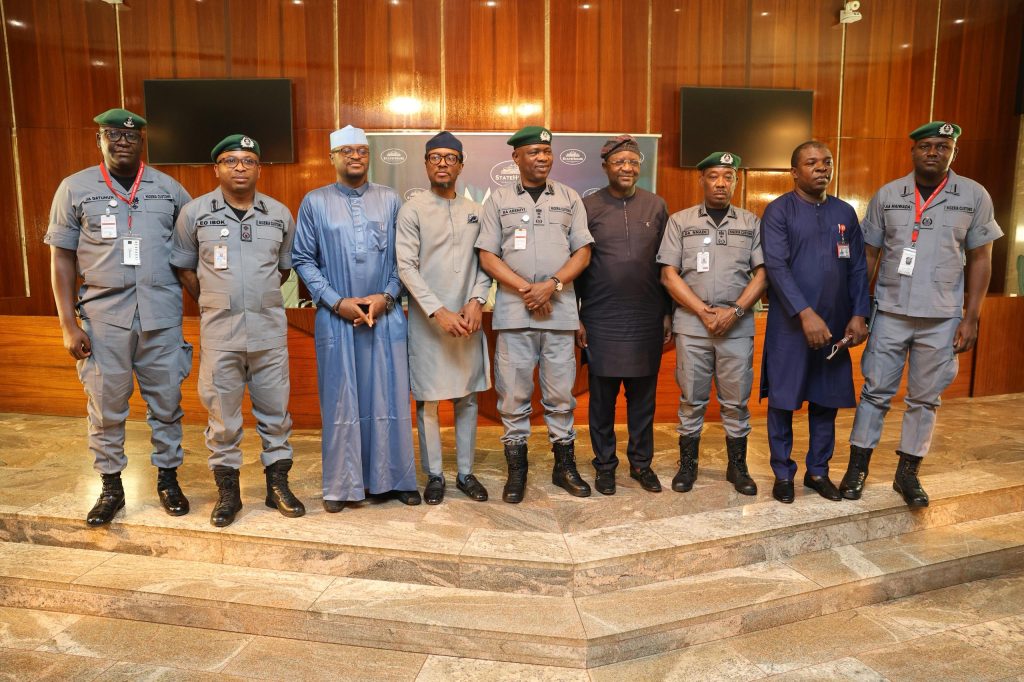
Adeniyi added that implementing free trade agreements requires robust political will, as countries must gradually reduce and eventually suspend customs duties on goods traded within the continent.
He noted that Nigeria has met its obligations under ECOWAS programmes, but similar levels of commitment are lacking across the remaining 14 member states.
Describing the Customs PACT as a policy-focused dialogue platform, Adeniyi said the programme seeks to stimulate regional development by positioning trade as a catalyst for investment, industrialisation and poverty reduction.
At the heart of the new initiative is the harmonisation of customs procedures across Africa to cut delays, lower trade costs, and remove border inefficiencies.
The upcoming conference will be private-sector driven, providing a forum for smoother movement of goods and supporting the core aims of the AfCFTA.
Adeniyi revealed that registrations from private-sector stakeholders currently outnumber those from government agencies.
He said the forum will bring together representatives from shipping, aviation, ports, manufacturing, banking and logistics, with discussions centred on improving information-sharing and strengthening joint enforcement to address smuggling, illicit trade and revenue leakages.
He flagged a recurring challenge where goods granted AfCFTA preferential status at their origin often lose those benefits upon arrival at destination ports—a problem the initiative aims to resolve.
The strategic policy forum will focus on capacity-building through enhanced training, upgraded systems and the adoption of global best practices, spanning all regions of the continent.
Adeniyi confirmed that at least 30 African customs administrations have committed to attending the conference, with 22 delegations to be led by their Comptroller-Generals or Directors-General.
The Secretary-General of the World Customs Organisation (WCO), Ian Saunders, is scheduled to deliver the keynote address.


 Trending
Trending 
